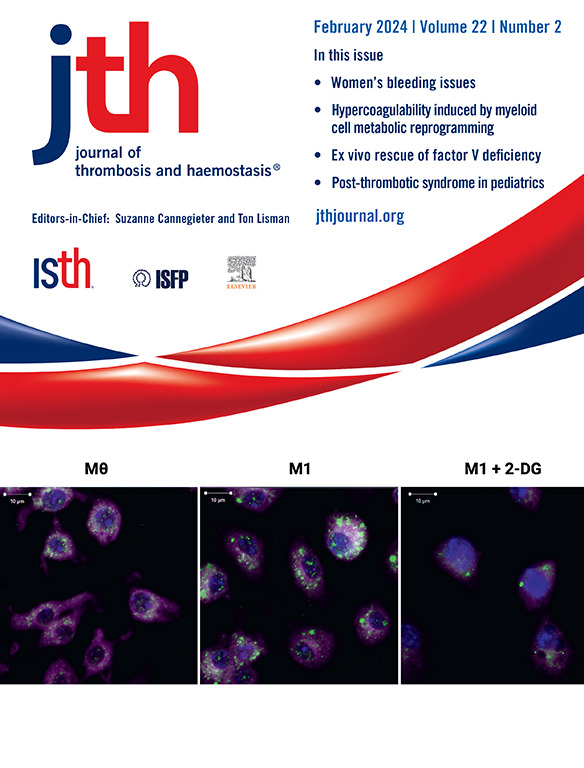应用人工智能揭示凝血因子的遗传格局。
IF 5.5
2区 医学
Q1 HEMATOLOGY
引用次数: 0
摘要
人工智能(AI)正在迅速提高我们识别和解释与凝血因子缺乏相关的遗传变异的能力。本文介绍了人工智能,特别关注机器学习(ML)方法,并研究了过去十年人工智能在凝血遗传学领域的应用。我们观察到人工智能相关出版物的显著增加,重点是血友病a和b。ML方法在预测遗传变异的功能影响和建立基因型-表型相关性方面显示出希望,例如用于FVIII变异的“Hema-Class”工具。然而,一些挑战仍然存在,包括需要扩大变异选择超出错义突变(这是现在大多数研究的标准)。未来,人工智能在调用、检测和解释基因变异方面的整合可以显著提高我们处理大规模基因组数据的能力。在这个框架中,我们讨论了各种基于AI/ ml的遗传变异检测和解释工具,强调了它们的优势和局限性。随着该领域的发展,多种人工智能模型的协同应用,加上严格的验证策略,对于促进我们对凝血障碍的理解和个性化治疗方法至关重要。本文章由计算机程序翻译,如有差异,请以英文原文为准。
Applying artificial intelligence to uncover the genetic landscape of coagulation factors
Artificial intelligence (AI) is rapidly advancing our ability to identify and interpret genetic variants associated with coagulation factor deficiencies. This review introduces AI, with a specific focus on machine learning (ML) methods, and examines its applications in the field of coagulation genetics over the past decade. We observed a significant increase in AI-related publications, with a focus on hemophilia A and B. ML approaches have shown promise in predicting the functional impact of genetic variants and establishing genotype–phenotype correlations, exemplified by tools like “Hema-Class” for factor VIII variants. However, some challenges remain, including the need to expand variant selection beyond missense mutations (which is now the standard of most studies). For the future, the integration of AI in calling, detecting, and interpreting genetic variants can significantly improve our ability to process large-scale genomic data. In this frame, we discuss various AI/ML-based tools for genetic variant detection and interpretation, highlighting their strengths and limitations. As the field evolves, the synergistic application of multiple AI models, coupled with rigorous validation strategies, will be crucial in advancing our understanding of coagulation disorders and for personalizing treatment approaches.
求助全文
通过发布文献求助,成功后即可免费获取论文全文。
去求助
来源期刊
CiteScore
24.30
自引率
3.80%
发文量
321
审稿时长
1 months
期刊介绍:
The Journal of Thrombosis and Haemostasis (JTH) serves as the official journal of the International Society on Thrombosis and Haemostasis. It is dedicated to advancing science related to thrombosis, bleeding disorders, and vascular biology through the dissemination and exchange of information and ideas within the global research community.
Types of Publications:
The journal publishes a variety of content, including:
Original research reports
State-of-the-art reviews
Brief reports
Case reports
Invited commentaries on publications in the Journal
Forum articles
Correspondence
Announcements
Scope of Contributions:
Editors invite contributions from both fundamental and clinical domains. These include:
Basic manuscripts on blood coagulation and fibrinolysis
Studies on proteins and reactions related to thrombosis and haemostasis
Research on blood platelets and their interactions with other biological systems, such as the vessel wall, blood cells, and invading organisms
Clinical manuscripts covering various topics including venous thrombosis, arterial disease, hemophilia, bleeding disorders, and platelet diseases
Clinical manuscripts may encompass etiology, diagnostics, prognosis, prevention, and treatment strategies.

 求助内容:
求助内容: 应助结果提醒方式:
应助结果提醒方式:


